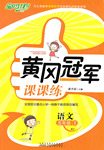题目内容
11.A study of English learning problems was carried out among a total of 106foreign students.It shows that nearly all these students considered (33)understanding (understand) spoken English,especially in the first few weeks,to be their biggest problem on arrival.This was followed by speaking or communicating.Writing then increased as a big problem as students discovered difficulties in writing papers that they (34)were expected (expect) to hand in.And at the same time,reading remained as a significant problem.The information (35)gained (gain) helped us in determining where special attention should be paid to in our course.Although many students have chosen to join the course with a reasonable motivation,we considered it important to note (36)what seemed to encourage interest.Nearly all the students have experienced some kind of grammar-based English teaching or teacher-centered English learning in their own country.It would be self-defeating (37)to use (use) the same method,especially if it has failed in the past or it is too complicated to follow or imitate,(38)because it might reduce motivation and interest.Therefore a different method may help because it is different.
(39)The variety of activities was also regarded as a way of maintaining or increasing motivation and interest.Several years ago we had the first timetable that operated throughout the course of English learning,but we soon found that both the students and the teachers lost interest by about half-way through the ten weeks.This led us to a major re-think,and we had to explore a much (40)more effective (effective) way of English learning,so finally we brought it into line with the expressed language needs of the students.
分析 本文为科教类说明文,文中介绍了对英语学习问题的调查结果;结果表明,几乎所以的学生都认为理解口语是最大的问题,其次是交际;在要交论文时写作才会成为最大的问题;这些获得的信息帮助我们决定课程中要特别关注什么;为了激发兴趣,应该采用与学生原先所习惯的不同的教学方式.
解答 33.understanding.本题考查词性转换;句中consider表示"看作,认为",常常用句式"consider sb./sth.+宾语补足语";句中缺少的是做宾语的名词,故用动名词understanding.
34.were expected.本题考查被动语态;that从句中的主语they(学生)与expect之间是被动关系,即期待学生交论文;被动语态的构成是"be+过去分词";根据上文的语境用过去时,故答案是were expected.
35.gained.本题考查过去分词做定语;句中已经有了谓语动词helped,所以gain 以非谓语的形式出现;gain充当 information的定语,与information 之间是被动关系,表示"已经获得的信息"故用过去分词gained,表示被动和完成.
36.what.本题考查名词性从句的引导词; 动词note后的宾语从句"____ seemed to encourage interest"中 缺少主语,what在名词性从句中做主语和宾语,故答案是what.
37.to use.本题考查动词不定式做主语,句中it为形式主语,真正的主语是 _____ (use) the same method;动词不定式做主语时常常用it做形式主语,故答案是to use.
38.because.本题考查逻辑关系; 主句分析的是现象--用相同的方法会适得其反,所以从句分析这种现象的原因,故答案是because.
39.The.本题考查冠词;句中 variety表示"变化",与上文的the same 相对应;the variety of 在这里强调活动的变化,故答案是The.
40.more effective.本题考查比较级;much常常用来修饰比较级,所以本题本题用形容词比较级more effective.
点评 语法填空用在整体理解文章的大意和逻辑的基础上关注句子的结构,关注其中的固定搭配.

 黄冈冠军课课练系列答案
黄冈冠军课课练系列答案-Yes,but it needs to go________ the clouds for hours.( )
| A. | through; across | B. | across; through | ||
| C. | across; across | D. | through; through |
So laugh your way to happiness.(39)Cit takes to put a smile on your face is what you should be doing.
Research shows that laughing can increase the immune(免疫) system,(40)Athe body to stay disease free and fight colds and the flu.
If you are facing an illness,having a positive life opinion and a (41)Bof humor will keep your body open to healing.If you are healthy,laughing will help to make sure you stay that way,and can (42)Denjoyment to your work and home life and(43)Dyour daily stress.
Certainly,it can be(44)Ato keep a positive opinion of life all the time.Simply taking the time to(45)Con the positive and treat for the good things (46)Bin your life can help (47)A,but if you are struggling with negative emotions that you just can't seem to (48)D,there are tools that can help.
There are so many things out there to smile about and(49)Ayou have to do is find (50)D.Practice looking for the bright (51)Aof every situation.Avoid the negative:don't(52)C yourself with your own problems-or (53)Dothers for their"shortcomings."And don't pay no attention to the joy in everyday things.Create your own"Laugh for Health"(54)D-anything to add to your collection and to give you fresh materials that (55)Ato you.
| 36.A.proudly | B.seriously | C.carefully | D.freely |
| 37.A.burdens | B.spirits | C.loads | D.values |
| 38.A.beneficial | B.changeable | C.suitable | D.harmful |
| 39.A.However | B.Whenever | C.Whatever | D.Whichever |
| 40.A.helping | B.making | C.letting | D.causing |
| 41.A.taste | B.sense | C.knowledge | D.joy |
| 42.A.adjust | B.adapt | C.apply | D.add |
| 43.A.improve | B.arise | C.cancel | D.reduce |
| 44.A.hard | B.awful | C.energetic | D.helpful |
| 45.A.look | B.put | C.focus | D.interview |
| 46.A.carefully | B.thankfully | C.particularly | D.differently |
| 47.A.remarkably | B.accidentally | C.frequently | D.purposefully |
| 48.A.seek | B.stress | C.accept | D.overcome |
| 49.A.what | B.that | C.how | D.why |
| 50.A.it | B.that | C.this | D.one |
| 51.A.side | B.plan | C.aspect | D.future |
| 52.A.depend | B.abandon | C.load | D.ban |
| 53.A.praise | B.miss | C.approve | D.blame |
| 54.A.ambition | B.summary | C.message | D.collection |
| 55.A.appeal | B.apply | C.center | D.assume |